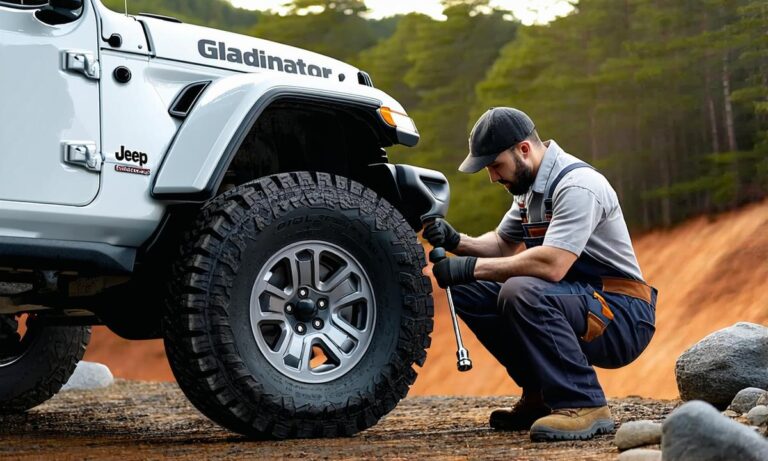How Reliable Is The Jeep 2.0 Turbo Engine? Assessing The Reliability!
The Jeep 2.0 turbo engine has had significant attention in the automotive market for quite a long time. But when the matter is about choosing it for your jeep, the question stands out: how reliable is the jeep 2.0l turbo engine?
To tell you the truth, some jeep owners have found the 2.0l turbo engine reliable while the others have experienced some issues like turbo lag issues or overheating. Moreover, according to some, the engine is the least reliable in the history of jeep.
However, it needs a deep insight to get to know whether the engine is reliable or not so that you can make an informed decision. So, without any more delay, let’s get to know it comprehensively.
Key Takeaways
- Jeep 2.0 Turbo engine excels in power and efficiency, delivering strong performance and fuel economy.
- Be aware of potential issues like turbo lag and maintenance costs.
- Consider both pros and cons before deciding on the Jeep 2.0 Turbo engine.
Jeep 2.0 Turbo Engine Specs
Understanding the specifications of the Jeep 2.0L turbo engine is crucial for assessing its reliability because these specifications provide insights into the engine’s design, performance, and capabilities.
Check it out below.
| Engine Type | Gas |
| Fuel Type | Premium Unleaded |
| Torque | 295 lb. – ft. |
| Torque RPM | 3000 rpm |
| Horsepower | 270 HP |
| Horsepower RPM | 5250 rpm |
| Engine Displacement | 2.0 L |
| Engine Configuration | Inline |
| Aspiration | Turbocharged |
| Cylinders | 4 cylinder |
| EPA Combined Fuel Economy | 20 MPG |
| EPA Highway Fuel Economy | 20 MPG |
| EPA City Fuel Economy | 20 MPG |
Why Make The Jeep 2.0 Turbo Engines Different?
Understanding why the Jeep 2.0L turbo engine is recommended can provide insight into its reliability.
It’s not just about knowing that it’s recommended; it’s about understanding the factors that make it a reliable choice.
Knowing the why behind the recommendation can help you assess whether it aligns with your needs and expectations, and whether it’s likely to be a dependable option for you.
1# Power and Efficiency:
The Jeep 2.0 Turbo engine stands out for its remarkable balance between power and efficiency.
It boasts ample horsepower and torque, ensuring robust performance across various driving conditions.
Despite its impressive power output, this engine excels in fuel efficiency, making it an economical choice for daily commutes and long-distance trips alike.
Its ability to deliver strong performance while maximizing fuel economy sets it apart in the market, appealing to drivers who seek both power and practicality in their vehicles.
2# Turbocharged Design:
At the heart of the Jeep 2.0 Turbo engine lies its turbocharged design, which enhances its overall performance and capabilities.
The turbocharger allows the engine to generate significant low-end torque, providing quick acceleration and responsive power delivery.
This feature not only enhances the engine’s performance on the road but also improves its towing capacity, making it suitable for hauling trailers, boats, or other heavy loads with ease.
Whether navigating city streets or conquering off-road trails, the turbocharged engine ensures a dynamic driving experience with ample power at your disposal.
3# Smooth Operation:
One of the defining characteristics of the Jeep 2.0 Turbo engine is its smooth and refined operation.
Despite its impressive power output, this engine delivers a quiet and composed performance, minimizing noise and vibration for a comfortable driving experience.
Whether cruising at highway speeds or idling in traffic, drivers will appreciate the engine’s smooth operation, which enhances overall comfort and enjoyment behind the wheel.
Additionally, its responsive throttle response and seamless power delivery further contribute to its refined driving dynamics, ensuring a pleasurable driving experience in any situation.
What Are The Downsides Of The Engine?
Understanding the drawbacks of the Jeep 2.0L turbo engine is crucial for assessing its overall reliability.
By knowing its limitations, potential buyers or current owners can make informed decisions about whether the engine meets their needs and expectations.
So let’s know it here.
1# Turbo Lag Issue:
One common issue associated with turbocharged engines is turbo lag, which refers to the delay in throttle response when accelerating from a standstill.
While advancements in turbocharger technology have minimized this issue, some drivers may still notice a slight lag before the engine reaches peak power.
2# Complexity and Maintenance:
Turbocharged engines tend to be more complex than naturally aspirated ones due to the additional components involved in turbocharging.
This complexity can lead to higher maintenance costs and potentially more frequent repairs over time, especially if components such as the turbocharger or intercooler require servicing or replacement.
3# Overheating:
Turbocharged engines generate more heat compared to naturally aspirated ones due to the increased combustion pressure and temperatures associated with forced induction.
Proper heat management is crucial to prevent overheating and potential damage to engine components.
It may require additional cooling systems or modifications to ensure optimal performance and reliability.
4# Potential for Carbon Buildup:
Turbocharged engines are more prone to carbon buildup on intake valves and ports due to the recirculation of exhaust gasses in the intake system.
Over time, this buildup can restrict airflow and reduce engine efficiency, leading to decreased performance and fuel economy.
Regular maintenance, such as intake valve cleaning, may be necessary to mitigate this issue and maintain optimal engine performance.
5# Cost:
Vehicles equipped with turbocharged engines often come with a higher price tag compared to their naturally aspirated counterparts.
Additionally, the cost of repairs and maintenance for turbocharged engines may be higher due to the specialized nature of turbocharging technology and components.
So, Is The Jeep 2.0 Turbo Engine Reliable Or Not?
The reliability of the Jeep 2.0 Turbo engine is a topic of debate among drivers and automotive experts.
While many users report positive experiences with the engine, praising its performance, efficiency, and durability, others have raised concerns about potential issues such as turbo lag and maintenance costs.
Ultimately, the reliability of the engine may vary depending on factors such as driving habits, maintenance practices, and individual experiences.
While some drivers may encounter problems with the engine over time, others may enjoy trouble-free performance for years.
It’s essential for potential buyers to consider both the advantages and potential drawbacks of the Jeep 2.0 Turbo engine and weigh them against their specific needs and preferences when making a decision.
Consideration Before Choosing Jeep 2.0l Turbo Engine
Before opting for the Jeep 2.0L engine, consider its power, efficiency, and potential drawbacks.
Assess its performance, reliability, and maintenance costs against your driving needs and preferences.
Take note of factors like turbo lag and the engine’s complexity. Evaluate whether its towing capacity meets your requirements.
Research user experiences to gauge reliability and durability over time. Ensure that the engine aligns with your budget and long-term ownership expectations.
By carefully weighing these considerations, you can make an informed decision about whether the Jeep 2.0L engine is the right choice for your vehicle.
FAQs
Here are some queries that are mostly asked by the jeep owners about the 2.0l turbo engine for you to know more about it.
Which Jeep engine is more reliable?
The reliability of Jeep engines can vary, but some models have earned reputations for durability. The 3.6-liter Pentastar V6 engine is often regarded as one of the most reliable options, known for its robust performance and longevity.
How much horsepower does a 2.0 Turbo Jeep Wrangler have?
The 2.0 Turbo Jeep Wrangler engine typically delivers around 270 horsepower. This power output provides ample performance for various driving conditions, including both on-road and off-road adventures, ensuring an exciting driving experience for enthusiasts.
How much can a Jeep 2.0 turbo tow?
The Jeep 2.0 Turbo engine is capable of towing up to 3,500 pounds when properly equipped. This towing capacity makes it suitable for hauling trailers, boats, and other recreational vehicles with ease.



